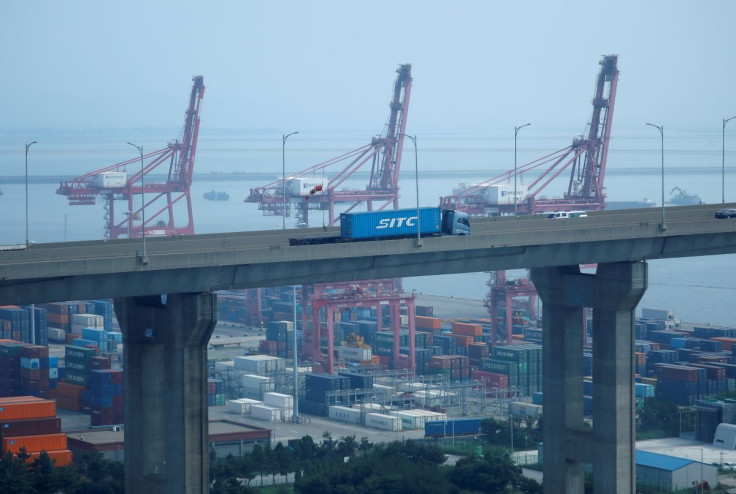S.Korea's Slowest Exports Growth In 19 Months Adds To Global Recession Fears

South Korea's June exports grew at their slowest pace in over 1-1/2 years as soaring inflation saps offshore demand for Korean goods, widening the trade gap and fuelling concerns about a global recession.
Shipment data out of Korea provides an early health check on global trade activity as manufacturers of chips to cars in Asia's fourth-largest economy import massive amounts of raw materials and straddle a wide swathe of the world supply chain.
Exports rose 5.4% from a year earlier to $57.73 billion, trade ministry data showed on Friday, beating the forecast for 3.8% growth in a Reuters poll but registering the slowest gain since November 2020.
Imports jumped by a much faster 19.4% to $60.20 billion as soaring energy prices raised the cost of imports, contributing to a trade deficit of $2.47 billion, the biggest since January this year.
"We are most likely to see some continuation of trade deficit for the time being as commodity prices surge," said Chun Kyu-yeon, an economist at Hana Financial Investment.
At a meeting with exporters on Friday, finance minister Choo Kyung-ho said exports conditions for the second half remains difficult as "commodity price surge, supply chain hiccups and volatile currency movements add to wider woes for exporters."
That bodes ill for the rest of the world, and underlines the growing concerns about a global recession amid rapid interest rate increases across many economies to tamp down rampant inflation that has swept up costs of everything from oil to fresh food.
"Even as China removes its COVID curbs, it would barely be adding improvement in demand as overall, global trade volume is weakening," Hana Financial's Chun said.
Indeed, a separate survey of 150 exporters across 12 industries by the Federation of Korean Industries on Friday showed they expected shipments to increase by a mere 0.5% in the second half from a year earlier, while 44% of the respondents predicted exports would decline in the second half.
In June, exports was restrained by temporary factors such as a week-long trucking strike, which held up deliveries to ports.
By region, exports to China declined 0.8% from a year earlier, while exports to the U.S., the world's largest economy, jumped 12.2%.
A breakdown of goods showed exports of cars and machines declined by 2.7% and 11.7%, respectively. Exports of semiconductor however jumped 10.7%.
© Copyright Thomson Reuters 2024. All rights reserved.



















